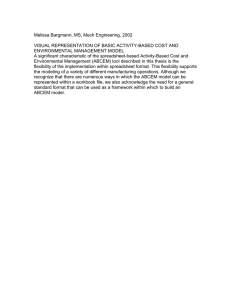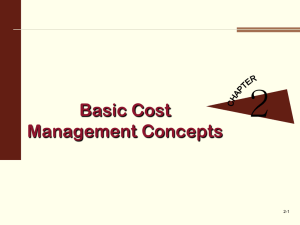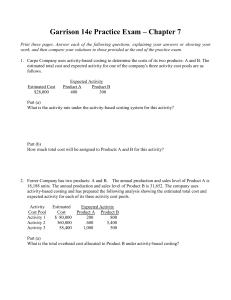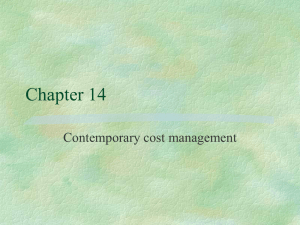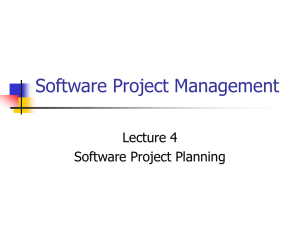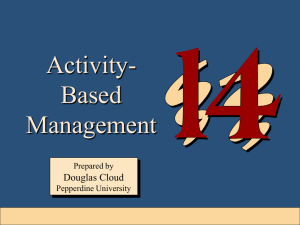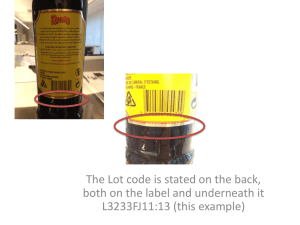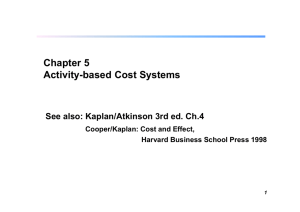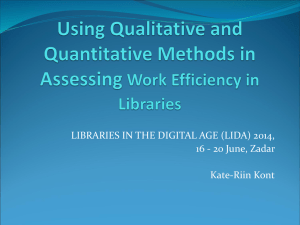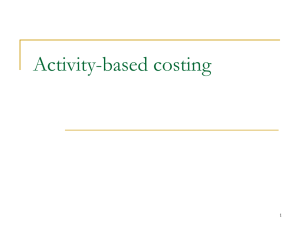accompanying Powerpoint file - CYC-Net
advertisement
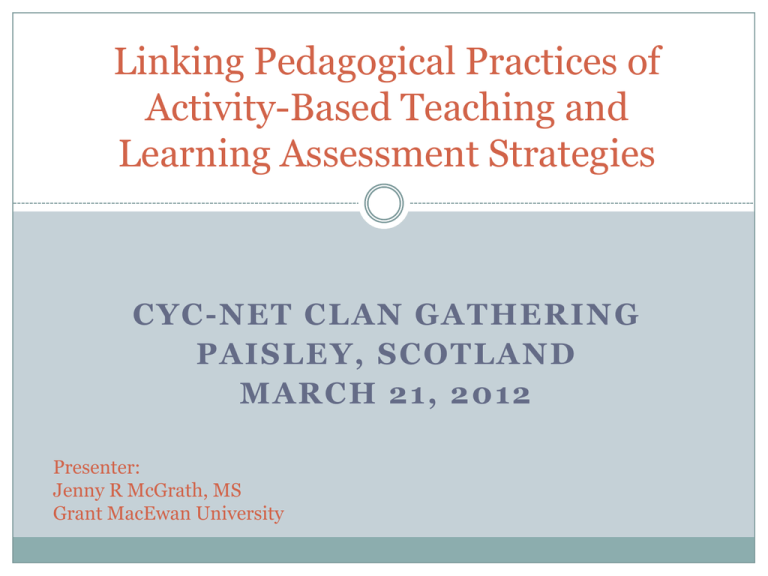
Linking Pedagogical Practices of Activity-Based Teaching and Learning Assessment Strategies CYC-NET CLAN GATHERING PAISLEY, SCOTLAND MARCH 21, 2012 Presenter: Jenny R McGrath, MS Grant MacEwan University During my brief presentation I will Provide a brief overview of some of the central tenets of activity-based education Illustrate how activity-based education is practiced in Child and Youth Care (CYC) education Showcase activity-based education pedagogy in the student learning assessment process My early love affair with activity Girl Guides of Canada Music Sports Student Leadership Travel Success through non- traditional classrooms Camping Relationships with family and friends It’s not just an ice-cream Activity is an essential intervention strategy in CYC because it promotes: 1. 2. 3. 4. 5. 6. 7. 8. Relationship building Trust Autonomy Communication Self-efficacy Confidence Social skills Self control What is activity-based education? Student is more actively involved in the learning process Emphasis is on the experiential “Heads on” as well as “Hands on” Congruent with relational epistemology Being Doing Critically Reflecting Goals of activity-based education Focus on student learning Activity is personally significant or meaningful to the student Creates a high level of personal engagement Students are given opportunity to write about, discuss and/or reflect on the process Encourages critical thinking, problem solving, communication and collaboration Allows some degree of student voice and choice Examples of Activity-Based Education USED ACROSS ALL FOUR YEARS OF THE BACHELOR OF CHILD AND YOUTH CARE GRANT MACEWAN UNIVERSITY “The idea of spending two days and a night with a group of people I had never met was terrifying. I never imagined I would leave with 35 friendships – a handful of them who would turn out to be lifelong friends” ~ first year student Students and faculty engaged in activity at an annual student retreat “I was still not 100% comfortable with my classmates. I jumped into the tunnel because I did not want to look weak in front of my new peers. That went out the window when half way through, I panicked. Two strangers talked me through the tunnel and stuck with me the whole time. Once I reached the other side, everyone cheered! That experience showed how supportive my peers are” ~ first year student Making my way through an underground tunnel during a challenge trail with my activity programming class Completed Masks “This project has continued to teach me things about myself and my practice. It has become an excellent reference point of my growth personally and professionally” ~ first year student Students applying plaster to their partners face Students are instructed to decorate the inside of the mask to represent their self care plan and the outside to represent their professional identity One student used the analogy of dance, specifically through a variety of well worn dance shoes to illustrate her idea of praxis. She discussed how she was awkward and out of step in the beginning but as she received more training, practice and support, she was better able to complete intricate steps and was eventually able to design her own choreography and teach others how to dance Illustrating personal praxis In a 3rd year course on theoretical frameworks and practice methods, students select a bottle of their choice and create an image of themselves onto the bottle. They are then required to take an electronic photo of their bottle against a backdrop that they create to illustrate their interpretation and personal experience of the course content Bottle Assignment Students learn: How to read How to critique How to use How to do research The showcase promotes: Curiosity Confidence Critical thinking Creativity Course based research project 4th year During a short term study abroad field course students: Attend classes Interact with Irish students Visit CYC agencies Learn about Irish history Experience cultural tours Journal about their trip Complete presentations in Ireland and in Canada Signing the peace wall in Belfast, Ireland Examples of activity-based assessment Assessment Benefits Portfolio Creative; reflective; collection of student work Case Studies Simulates real life scenarios; critical thinking; reflection Group Work Collaboration; divergent thinking; presentations Projects (such as masks) Personal; meaningful; creativity; practical application Research Investigation; engage with methodologies Showcases Confidence; dissemination of work; engaging Discussion boards Engaging, especially for quieter students; allows for more depth to discussions Why do it? “Tell me and I forget. Show me and I remember. Involve me and I understand. ~ Chinese Proverb The benefits are endless for instructors and students: engagement; relationship; challenge; diversity; memories; creativity; fun; learning Moves focus from teaching to learning Assesses not only content but also application, integration and reflection Examples of activity are always talked about with humour and pride at graduation and other significant events Thank-you!!!
